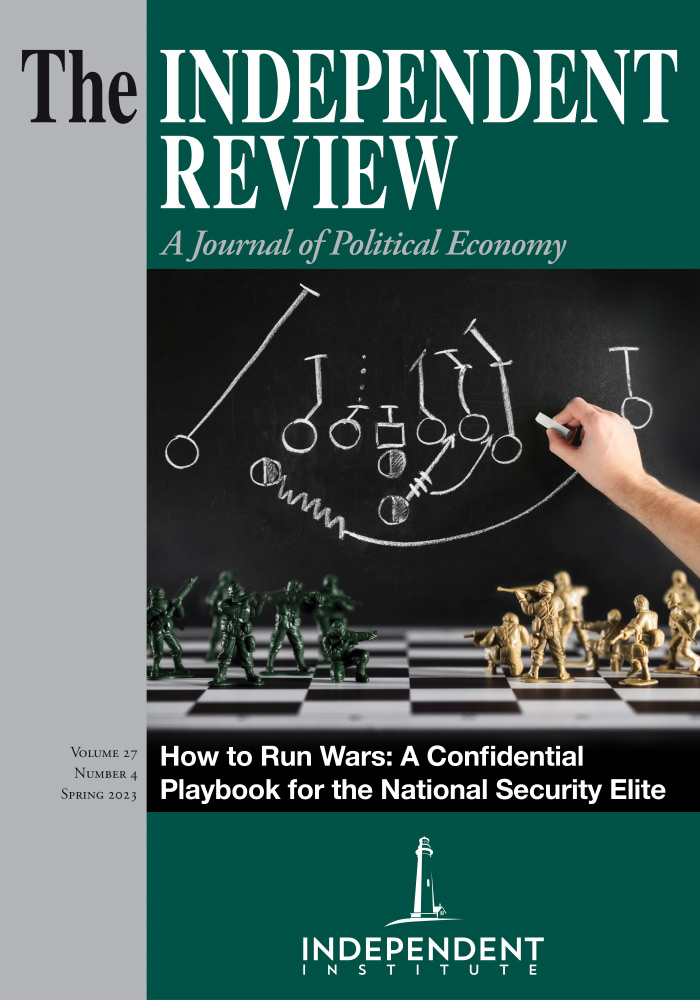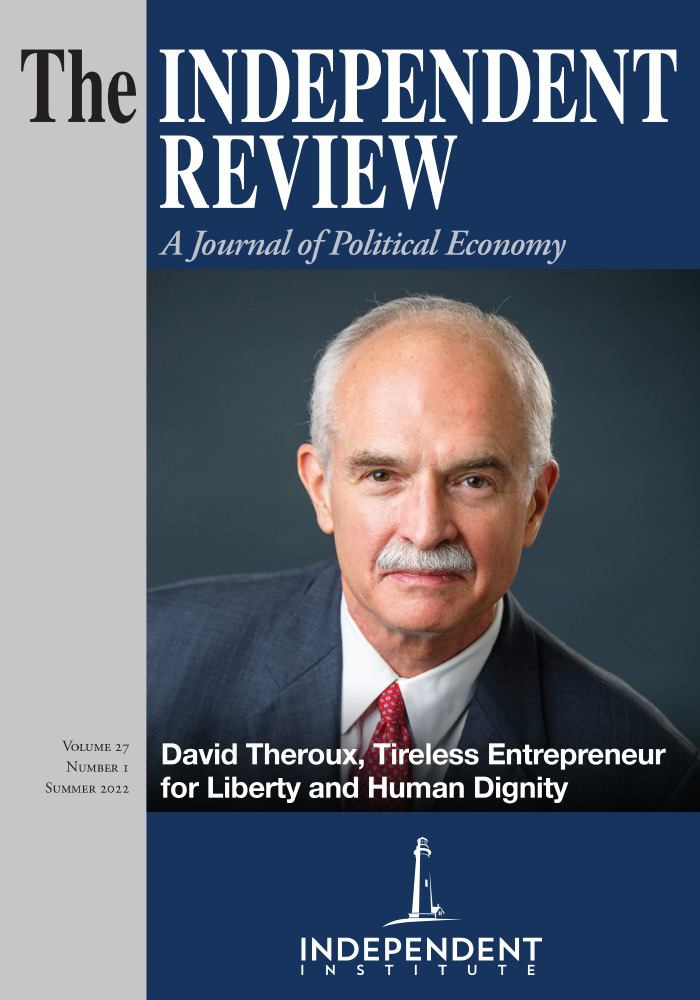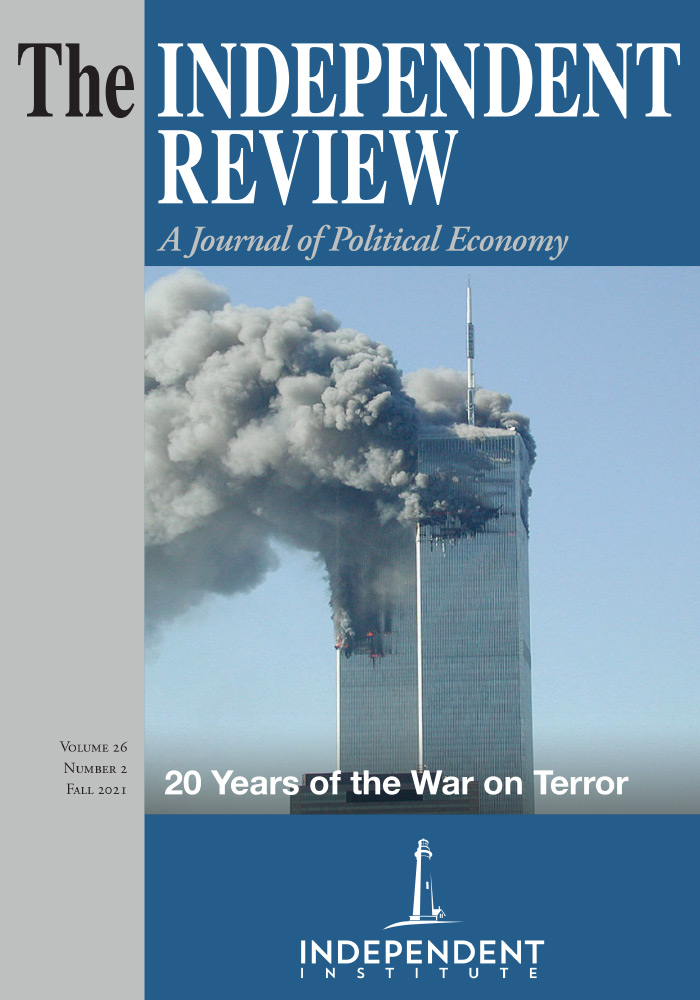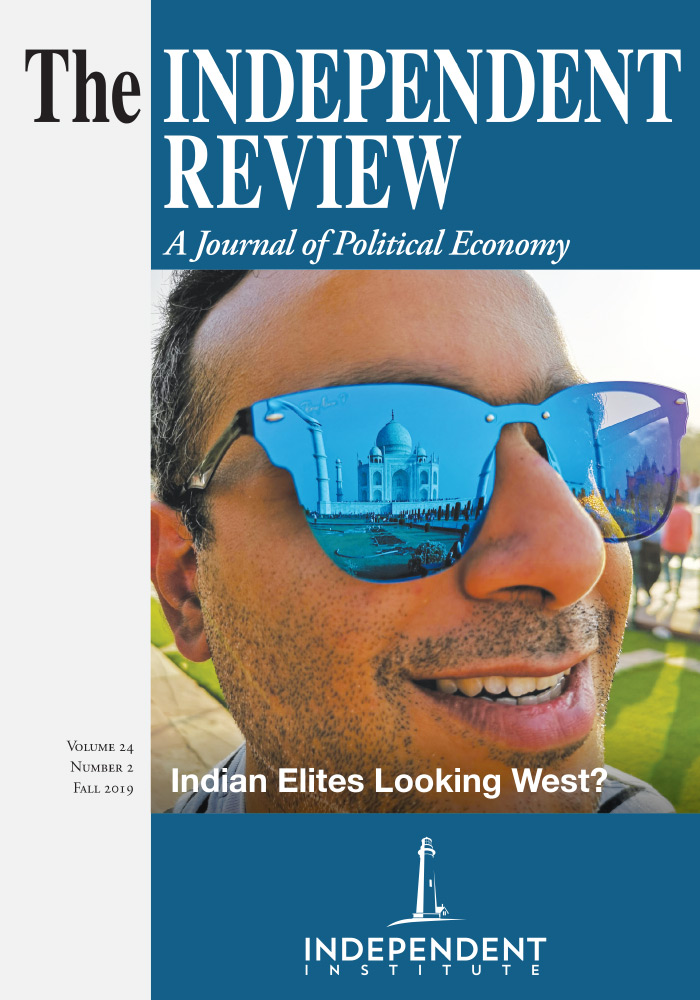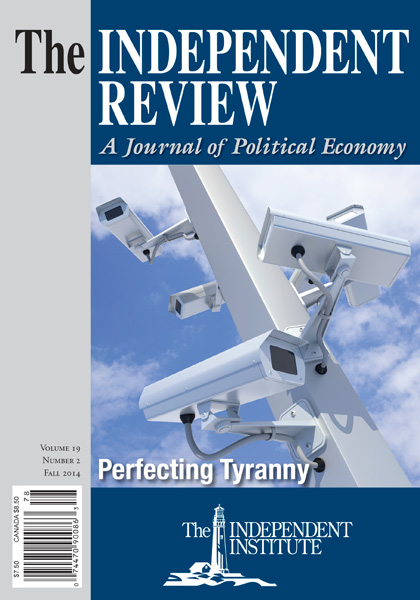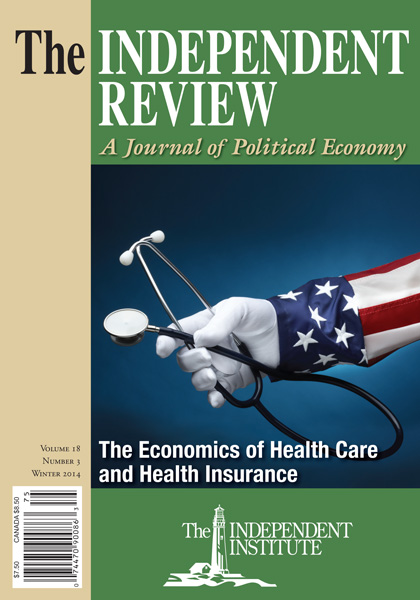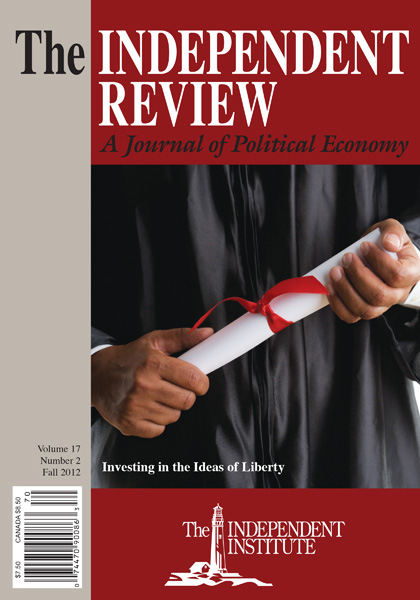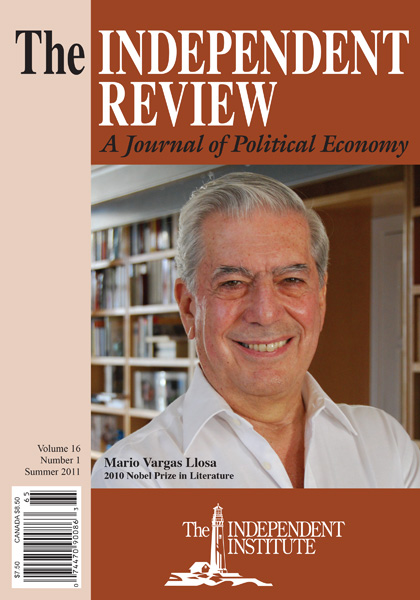In this contribution to the New Thinking in Political Economy series, Lorenzo Infantino further explores the history and nature of Western liberal thought, a recurrent subject of interest throughout his accomplished scholarly career. As the title of the volume indicates, Infantino here traces the intellectual development of the notion of unintended consequences in the social sciences, beginning with the ancient Greeks and extending to Herbert Spencer in the nineteenth century.
Working in the “evolutionary” tradition the author ascribes to Bernard Mandeville, David Hume, Adam Smith, Carl Menger, Karl Popper, and Friedrich Hayek, among others, Infantino designates unintended consequences as the specific object of study of the social sciences. The task of the social scientist is then to investigate the conditions under which unintended consequences of either a positive or negative character arise, with the hope that sufficient understanding of the relationships between conditions and outcomes will enable us to orient our actions towards generating the former while minimizing the latter. Readers familiar with Infantino’s past works, particularly 1998, Individualism in Modern Thought: From Adam Smith to Hayek, London: Routledge, and 2002, Ignorance and Liberty, London: Routledge,, or wider classical liberal ideas concerning spontaneous order generally, will not find it surprising that the author favors abstract general rules which safeguard each individual’s freedom to pursue his own hierarchy of ends with the means at his disposal.
The narrative Infantino offers, being focused on the development of the understanding of unintended consequences in the social sciences, involves a clash between two major currents in the history of intellectual thought. One seeks to explain all social phenomena as arising directly from the will of some particular being, whether of human or divine origin, or at least considers a social order that arises absent such singular direction to be inferior if not impossible. Infantino ascribes this position, for differing reasons, to such writers as Plato, Francis Bacon, René Descartes, Francis Hutcheson, and Auguste Comte in the course of the book.
Infantino himself follows an alternative path laid out by Mandeville, Hume, and Smith, who recognize the social process, characterized by voluntary actions undertaken in the pursuit of self-interested ends, to involve not only the pursuit of one’s own ends but also, however unintentionally, the attainment of the ends of one’s exchange partner, thereby generating a social order not directly willed by any individual but nevertheless arising from human intentionality. Actions may of course result in error, which take the form of negative unintended consequences, due to human ignorance and fallibility. However, such necessary limitations on the capability of individuals to control the entire effective range of their actions also means that no particular individual has the power to single-handedly direct the social process or can be said to possess a “privileged source of knowledge” that can be used to justify the imposition of a mandatory hierarchy of ends on all members of a society.
The book is composed of six chapters, with chapters 2 through 5 juxtaposing the treatment of the problem of unintended consequences by a number of key thinkers in the history of the social sciences. Following an introductory chapter establishing the major themes of the book in the context of ancient Greece, the narrative quickly jumps to Pierre Bayle in the late seventeenth century. After establishing Bayle to be a key influence on Bernard Mandeville in separating religion from superstition and both from the practice of social science, chapter 3 explores tensions, both personally and intellectually, between Francis Hutcheson, conventionally regarded as formative in the development of the Scottish school of philosophy centered at the University of Glasgow, and David Hume. The text particularly comes alive in this chapter, as it seems Infantino feels some urgency to correct the record in arguing for an “unbridgeable distance” between Hutcheson and Hume, at least with regard to their conceptions of social order, which Infantino traces directly to their opposing positions on Mandeville’s writing on the socially beneficial consequences of self-interest (p. 48).
Chapter 4 begins with an analysis of Charles-Louis de Montesquieu’s inconsistent approach to the problem of unintended consequences. Infantino notes that Montesquieu recognized the positive unintended consequences produced by impartial law while at the same time praised the “imperatively imposed virtue” of ancient Sparta and intentional order generally (p. 62). Adam Smith, meanwhile, like his friend Hume, favored Athens’ commercial culture and further developed Mandeville’s ideas concerning the social order. Infantino’s treatment of Smith’s principal volumes accords with modern Smithian scholarship in recognizing the superficiality of the supposed “Adam Smith Problem” of times past, where some scholars claimed to identify a contradiction in Smith’s approach to self-interest across The Theory of Moral Sentiments and The Wealth of Nations.
Chapter 5 briefly considers the legacy of Hume and Smith in relation to the writings of Edmund Burke and Benjamin Constant, who were both indebted intellectually, as well as personally in the case of Burke, to the Scotsmen and carried on their understanding of social order. Infantino then considers Auguste Comte and Herbert Spencer, the latter of whom is credited with preserving the legacy of the theorists of unintentional order despite the former’s attacks, before turning to the intellectual affinity between Spencer and the Darwins, namely Charles and his grandfather Erasmus. Chapter 6 concludes with a welcome recognition that the human and non-human spheres must be analyzed separately on account of the positive-sum nature of voluntary human interaction. Therefore, concepts from the natural sciences such as “natural selection” or “struggle for existence” are inappropriate when carried over to the social sciences and, when taken literally, do great damage to our understanding of human society.
While there are too many interesting insights nestled in allusions or footnotes to take account of in this review, Infantino offers what I found to be a particularly interesting analysis of two distinct strands in classical economics, represented on one side by the “utilitarian individualism” of Jeremy Bentham and John Stuart Mill and on the other the “cultural evolutionism” of Mandeville, Smith, and Hume. Infantino then extends this bifurcation to the late nineteenth century marginal revolution, supporting the dehomogenization of Menger from William Stanley Jevons and Leon Walras by placing Menger in the lineage of the Mandeville/Smith/Hume tradition and Jevons and Walras in the homo oeconomicus-oriented tradition of Bentham and Mill.
Despite being a slim volume by academic standards and quite limited in scope, being focused strictly on Western intellectual thought concerning unintended consequences and the unintentional nature of social order, Infantino summons references and draws connections in such a way that I imagine even a reader of a different intellectual tradition cannot help but acknowledge the impressive caliber of the work. While I believe Infantino should be commended on his forthrightness in dealing with the various thinkers discussed in the book, as he makes his own positions clear and does not refrain from praising his heroes and identifying his villains, at least with respect to their orientation towards the central themes of the book, readers from different or especially unsympathetic intellectual traditions may not find such treatment balanced or convincing. To give one example, religious readers, particularly of traditions which appeal to philosophical justifications of faith such as scholasticism, might bristle at the strong distinction Infantino at times seems to draw between knowledge of the “profane” and belief in the “sacred” and therefore the possibility of a relationship between divine and human order. However, this possible qualm need not detract from an appreciation for the emphasis Infantino places on the need to avoid treating particular human individuals as “privileged sources of knowledge” sufficient to justify their coercive direction of the actions of others (p. 25).
There are also instances where the connections Infantino draws between concepts or assertions he makes about hypotheticals relating to what some thinker under discussion would have thought in some circumstance are puzzling, or at least fall short of the confidence intimated in the course of the analysis. For instance, it is not obvious that Menger “would have reiterated,” had he lived to see Hayek identify him as a member of the same intellectual tradition as Smith and Hume, that Smith’s presentation of the labor theory of value justified Menger’s consideration of Smith as a constructivist in the tradition of Bentham and John Stuart Mill, as the connection between Smith’s positive economic analysis, however erroneous it may be at times, and Menger’s impression of Smith’s approach towards social order, however inaccurate that may also be, escapes me (p. 86). Incidentally, Infantino also refrains from mentioning that Menger substantially relied on Smith’s work in his lectures to Crown Prince Rudolf, which casts doubt on Infantino’s implication that Menger would repudiate the kind of connection with Smith suggested by Hayek.
Scholars already well versed in classical liberal thought on spontaneous social order and unintended consequences may find the connective threads Infantino identifies between liberal forerunners interesting, but otherwise will likely not profit as much as students less familiar with the core ideas represented, as at times Infantino heavily relies on the interpretations and references of, among others, Popper and later writings of Hayek. It is also unfortunate that readership will likely be restricted to those with university credentials due to the pricing of academic publications, as discerning lay readers would especially benefit from the appreciation Infantino brings to bear for the social order generated simply from the self-interested actions of individuals. Therefore, I believe this volume will serve as a particularly effective supplemental text in graduate level seminars that deal to some extent with Western classical liberal social thought.
I should add before closing that Infantino assumes significant literacy on the part of readers, not only concerning the lives and writings of the scholars discussed but even of foreign language expressions, though recognizing every reference is far from required to understand the essential arguments of the work. In all, this is, despite limitations in scope, an impressive work that reflects a career spent in dedicated study of the most fundamental problems of the social sciences and will be of interest to scholars working in areas related to the philosophy of the social sciences or the history of liberal thought.






